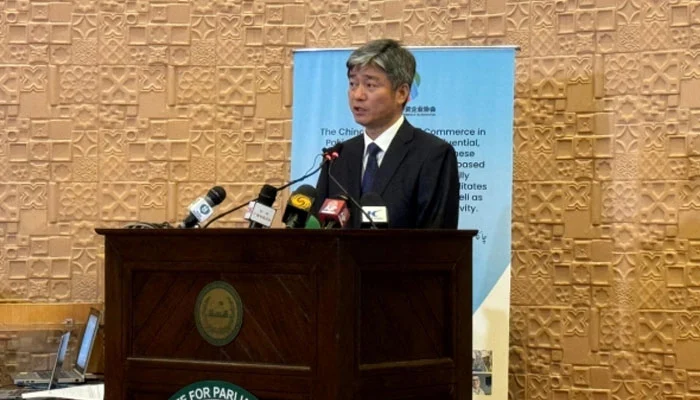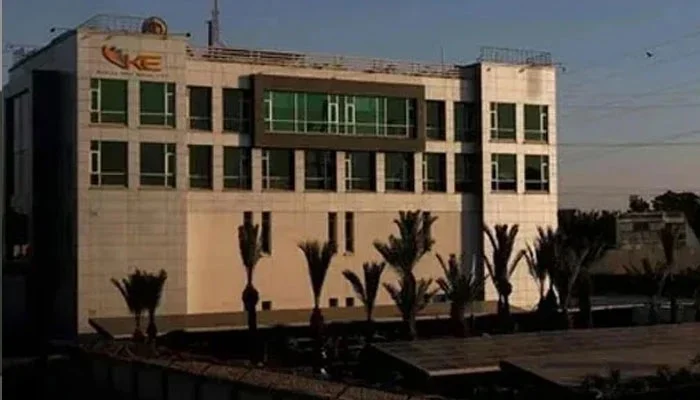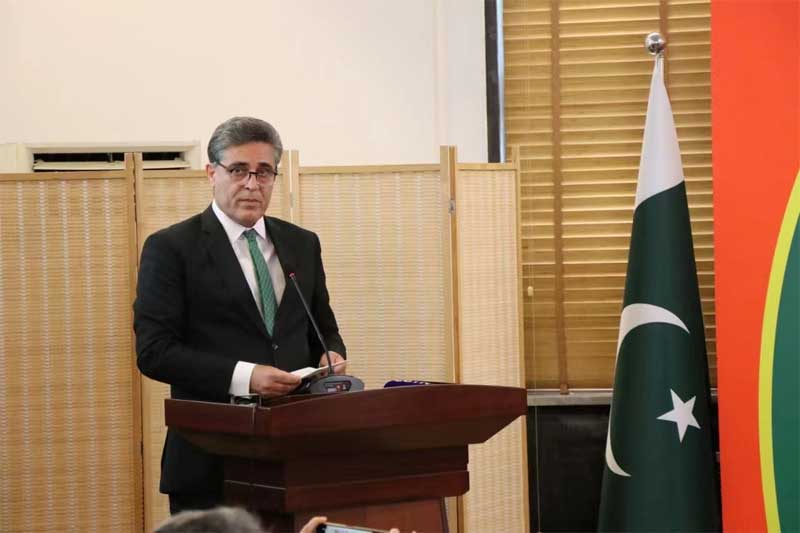Chinese businesses have urged Pakistan’s government to boost security, streamline processes through one-window operations, and ensure policy continuity to attract investment and promote industrialization. Wang Huihui, Chairman of the China Chamber of Commerce and Industry in Pakistan (CCCPK), emphasized the need for a secure investment environment to foster Chinese private sector participation. He suggested Pakistan adopt China’s Green Special Economic Zone (SEZ) model, which integrates eco-friendly and sustainable development practices, including renewable energy.
Wang pointed out that SEZs can drive industrial growth, alleviate poverty, and create jobs in Pakistan. With a Business Climate Index of 49.63, just shy of the 50-point optimism threshold, Chinese firms cited deteriorating security, foreign exchange issues, and policy inconsistencies as major concerns, according to a CCCPK survey. However, 70% of Chinese firms in Pakistan remained hopeful about future economic conditions.
In a policy dialogue hosted by the Sustainable Development Policy Institute (SDPI), Pakistani officials and Chinese representatives discussed ways to enhance SEZ development under CPEC 2.0. Mushahid Hussain Sayed, Chairman of the Pakistan-China Institute, advocated for an autonomous authority to manage CPEC projects, as current bureaucratic inefficiencies hamper progress. Mustafa Haider Syed, Executive Director of the Pakistan China Institute, echoed this, noting that frequent government changes disrupt SEZ stability.
With increasing trade barriers against China in Western markets, Pakistan could serve as a manufacturing hub for electric vehicles, solar panels, and renewable energy. Hassan Daud Butt, Senior Advisor to Energy China, stressed the need for localization within SEZs and emphasized that Pakistan must establish a clear roadmap for investors.
Erfa Iqbal from Pakistan’s Board of Investment noted growth opportunities in CPEC’s Phase II, with recent roadshows across Chinese cities aimed at attracting investment in Pakistan’s export-oriented sectors. She clarified that while the IMF suggested phasing out SEZ incentives, it did not call for their elimination.
Shakeel Ahmad Ramay, CEO of the Asian Institute of Eco-civilization, stressed that overlapping institutional roles and investor security issues must be addressed to make Pakistan a viable destination for Chinese investment.




